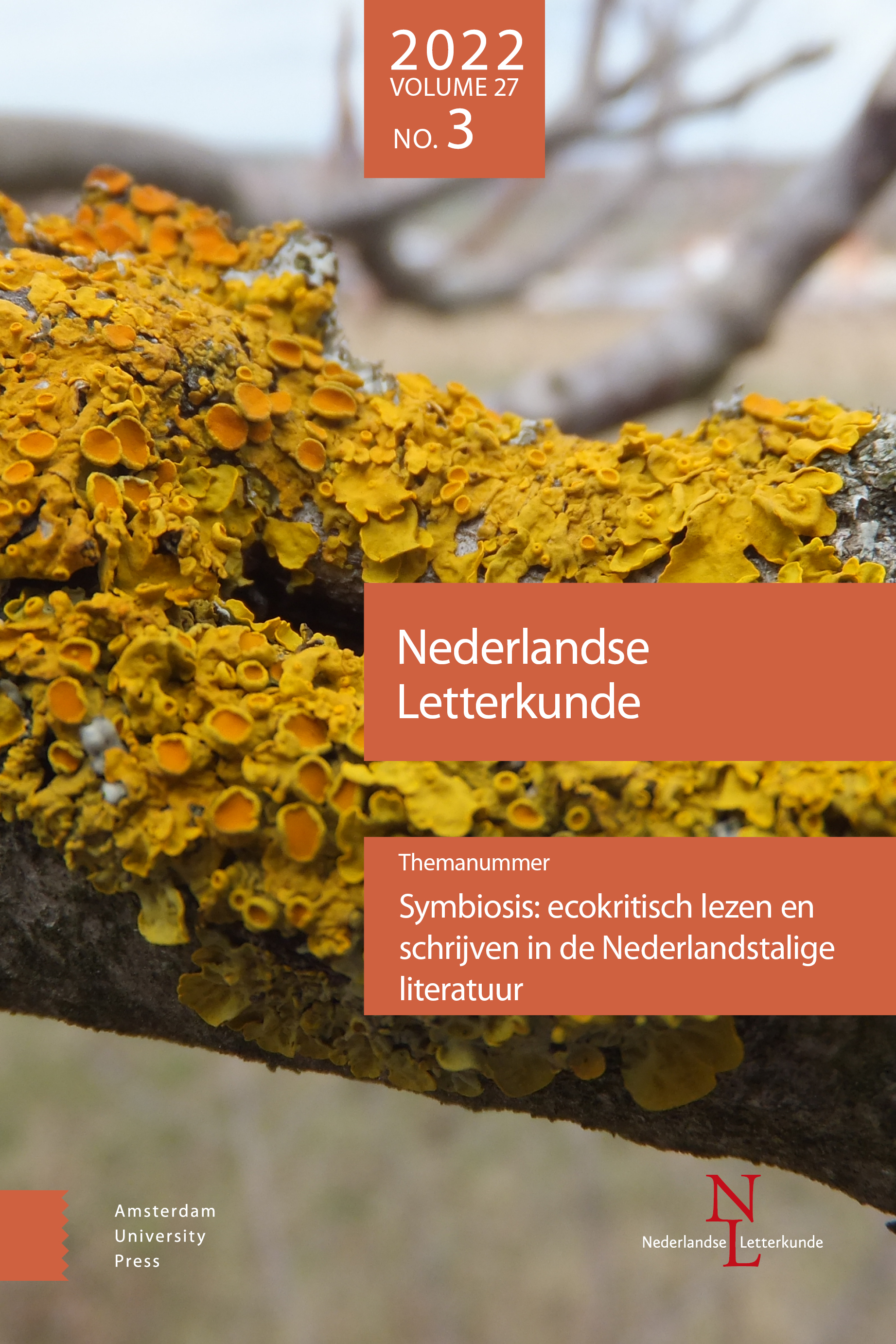-
oa Reinhart, of natuur en verbeelding. Een ecokritische analyse van de verhouding tussen mens en natuurlijke omgeving in Reinhart, of natuur en godsdienst
- Amsterdam University Press
- Source: Nederlandse Letterkunde, Volume 27, Issue 3, Dec 2022, p. 265 - 285
-
- 01 Dec 2022
Abstract
In Elizabeth Post’s epistolary novel Reinhart, of natuur en godsdienst (1791-1792), the eponymous protagonist leaves the Republic to become a plantation owner in Dutch Guiana. Throughout the novel, the reader is presented with the protagonist’s Eurocentric perspective on the local natural environment and his position as a human being in relation to that environment. This article will challenge the colonial interpretation of the novel’s perspectives on nature through an ecomaterialist and postcolonial reading. First, I will analyse how Reinhart imagines his interaction with the natural environment by appealing to conceptualisations inherent to several eighteenth-century literary genres such as pastoral and georgic poetry, the sentimental novel, and the Dutch ‘hofdicht’ or country house poem. I discuss how Reinhart’s depiction of his plantation through these genres may be considered a form of imaginative colonisation as he aims to cognitively domesticate Guyanese nature through European conceptualisations. Subsequently, I will address critical moments in the novel which invite an ecomaterialist imagination of the natural environment. Multiple climatological events disrupt Reinhart’s constructs of the environment, resulting in the protagonist’s increasing disillusionment with his own positioning within the natural and colonial environment of Dutch Guiana.


